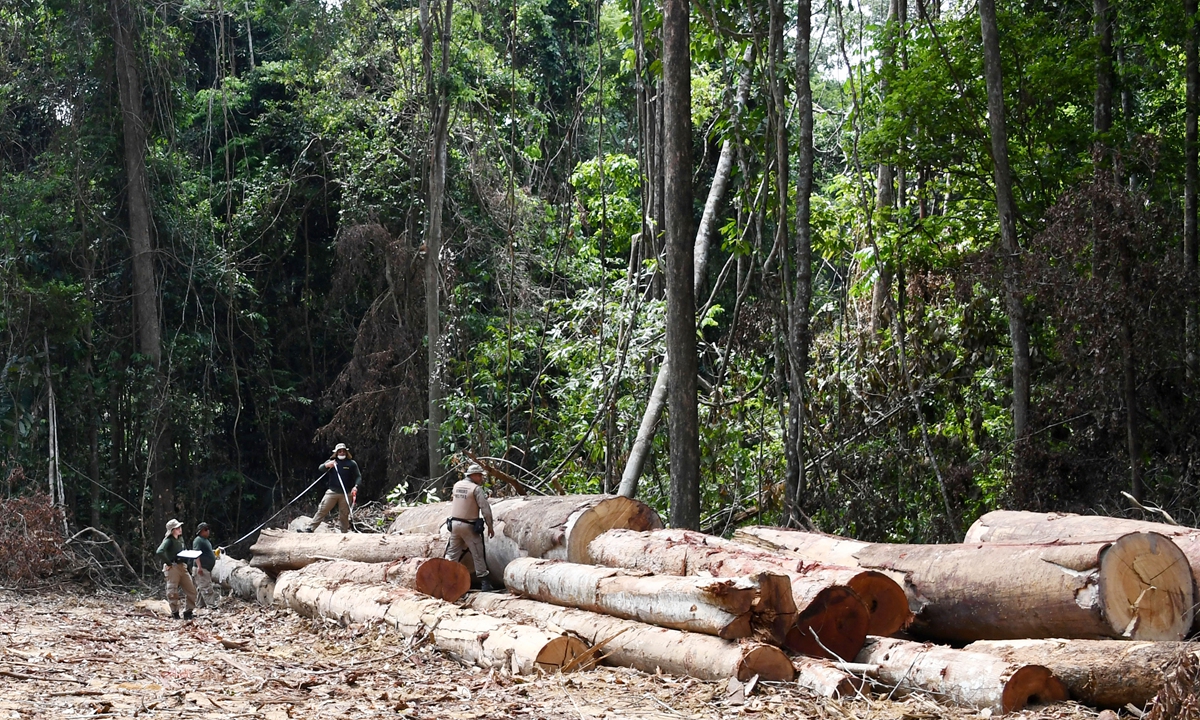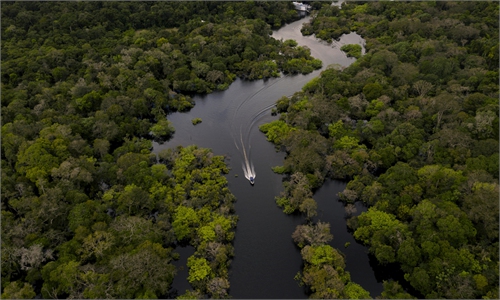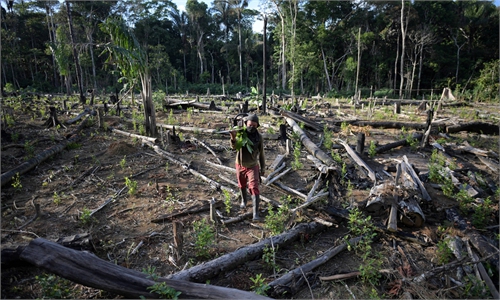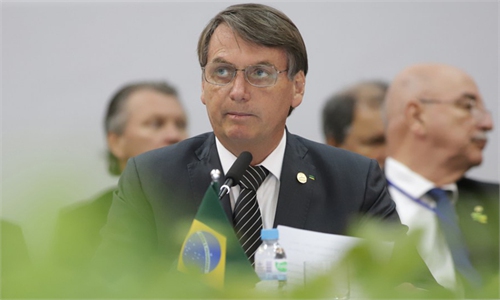
Officials from Para State, northern Brazil, inspect a deforested area in the Amazon rain forest during surveillance on September 22. Photo: AFP
Hammered by climate change and relentless deforestation, the Amazon rainforest is losing its capacity to recover and could irretrievably transition into savannah, with dire consequences for the region and the world, according to a study published Monday.Researchers warned that the results mean the Amazon could be approaching a so-called "tipping point" faster than previously understood.
Analyzing 25 years of satellite data, researchers measured for the first time the Amazon's resilience against shocks such as droughts and fires, a key indicator of overall health.
This has declined across more than three-quarters of the Amazon basin, home to half the world's rainforest, they reported in Nature Climate Change.
In areas hit hardest by destruction or drought, the forest's ability to bounce back was reduced by approximately half, co-author Tim Lenton, director of the University of Exeter's Global Systems Institute, told AFP.
"Our resilience measure changed by more than a factor of two in the places nearer to human activity and in places that are driest," he said in an interview.
Climate models have suggested that global heating - which has on average warmed Earth's surface 1.1 C above preindustrial levels - could by itself push the Amazon past a point of no return into a far drier savannah-like state.
If carbon pollution continues unabated, that scenario could be locked in by mid-century, according to some models.
"But of course it's not just climate change - people are busy chopping or burning the forest down, which is a second pressure point," said Lenton.
"Those two things interact, so there are concerns the transition could happen even earlier," he said.
AFP



